Speculative fiction readers love series. We can tell this because the majority of speculative fiction books—seventy percent, by some accounts—are part of a series. Indeed, as far back as 1992, when America was still lit by whale oil lamps, famed editor Gardner Dozois complained about the sharp rise in series books. To this day, they dominate the field.
Despite the overwhelming popularity of series, there’s a lot to be said for works that contain within themselves a complete story…works that do not leave the reader wondering if the author or authors will ever manage to bring their epic tale to a satisfactory conclusion. Take these five recent works for example.
Kagami No Koji by Mizuki Tsujimura; translated as Lonely Castle in the Mirror by Phillip Gabriel (2017, English edition 2020)
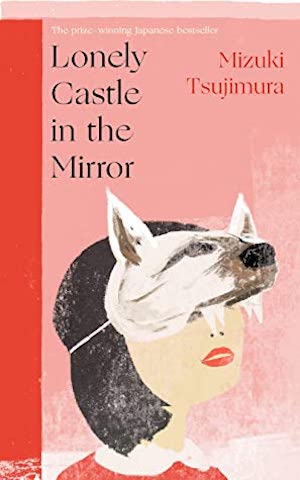
The victim of incessant mass bullying, painfully aware that the authorities prefer to victim blame than to address such issues, Kokoro Anzai deploys a simple but effective countermeasure. Kokoro no longer attends school; she won’t even leave her house. It’s the hikikomori way for Kokoro. Or at least it would be, save for the intervention of the Wolf Queen.
The Wolf Queen’s true identity is unclear. However, she commands enough magic to draw to her castle seven students: Kokoro, Aki, Fuka, Masamune, Rion, Subaru, and Ureshino. The seven are to spend the next few months on a marvelous treasure hunt. The winner will get a wish! The losers will get nothing. And if any of them breaks the rules of the game into which they have been drafted, they will all face dire, collective punishment. Potentially horrific, but as Kokoro discovers, still better than what she had at school.
Last Poet of Wyrld’s End by Melanie Stormm (2020)
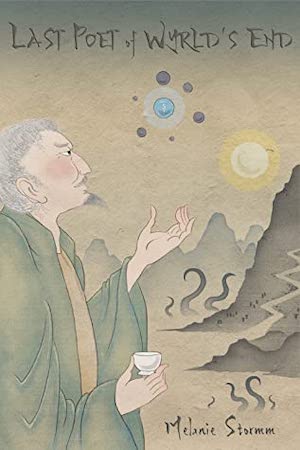
Poet Zhou Liu Yang’s pocket should include a tobacco pouch, an ink bottle, a treasured brass pen gifted to the poet by his estranged daughter, the coin with which he intended to purchase morning tea, and most importantly, Yang’s treasure, a blue marble with marvelous properties. What his pocket actually contains is nothing, because his pocket has a large hole.
Wyrd’s End may be a small town. Still, lots of room for a blue marble to fall unnoticed. Despite its comparatively tiny population, the community is rich with factions. It is a place in which schemes and plots abound. Not the sort of place a humble poet would want to have to search for a small marble. Nevertheless, this is the task Yang must embrace, if he ever wants to see his tobacco pouch, ink bottle, brass pen, coin, and precious marble again.
The Art of Saving the World by Corinne Duyvis (2020)
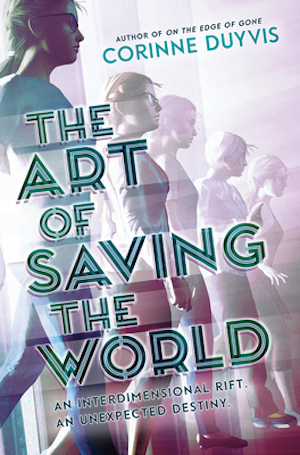
In another life, Hazel Stanczak might have obsessed about how her well-meaning but conservative parents will react should Hazel ever mention her attraction to Marybeth McKellan. Thanks to the interdimensional rift that appeared in the Stanczak backyard, Hazel’s as yet unexplained connection to the rift, and the Mysterious Government Agency that descended on the family farm after the rift manifested, this concern about sexuality and acceptance is just one of many issues about which Hazel is extremely stressed.
Because the rift goes haywire when Hazel gets too far from it, she has until now been forced to stay close to home. This changes on her sixteenth birthday—but not for the better. Hazel is her Earth’s Chosen One and if she is not inclined to act as those who Chose her would have her act, they are happily to provide motivation. The rift runs amok. Versions of Hazel as she might have been begin appearing. Monster swarms rampage across the US. Hazel’s world is in danger and Hazel herself may be doomed…all for a purpose as trivial as it is infuriating: entertainment.
The Annual Migration of Clouds by Premee Mohamed (2021)
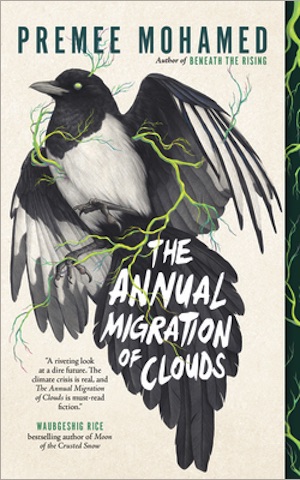
A pessimist might say that ninety-nine out of a hundred people died in the calamities that brought civilization to its knees. An optimist would point out that at least there were survivors. A pessimist might dwell on the lost infrastructure and the now semi-mythical technology that vanished from most of the Earth. An optimist would rejoice that at least enough remains for a handful of people to scrape a bare living from inhospitable Earth. Neither the pessimist nor the optimist would be entirely clear how much of their thought processes are manipulated by Cad, an insidious, manipulative parasitic infection that has entrenched itself within so many survivors.
Howse University is an oasis of lost technology in a dark age. Reid Graham is therefore overjoyed to learn that she has been accepted as a student. However, before she can attend, she must reach distant Howse. This significant challenge is eclipsed by the fact that to journey to Howse, she must leave her mother and her hometown. Her mother does not want to lose her daughter. The town is perpetually short of labour. Which is more important to Reid, personal growth or community loyalty? How much of Reid’s ambition originates from Reid herself and how much is the nudging of the Cad that lurks within Reid?
Foxhunt by Rem Wigmore (2021)
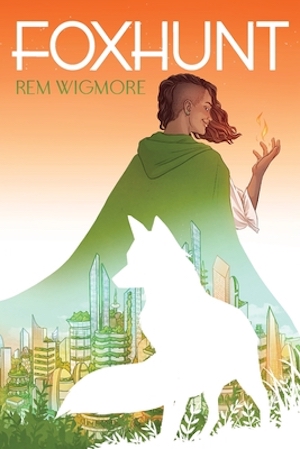
Five centuries ago, the Brink brought humanity and the ecosystems in which it is embedded to the verge of total collapse. Civilization survived, in part because of the rise of institutions whose role it was to encourage planetary responsibility by punishing short-sighted greed. Take the Order of the Vengeful Wild, for example: this autonomous organization of highly trained, technologically enhanced killers stalks and executes ecological villains on the basis of top-quality hearsay.
Nanotech-enhanced wandering entertainer Orfeus is as community-minded as the next person (provided the next person is an oversexed bard with a predilection for other people’s spouses) but Orfeus draws the line at allowing a homicidal vigilante to murder Orfeus on a flimsy pretext. Establishing to her satisfaction that escape from the Order is impossible, Orfeus does the only thing someone in her position can do: she joins it.
***
All of these come with the caveat that of course, nothing prevents the authors from writing sequels. However, each of the stories above functions as a standalone work, delivering all the reader could want, rather than leaving them to wait years or perhaps decades for the next installment. No doubt many readers are eager to discuss other standalone works they are astounded I did not mention—comments, as ever, are below.
In the words of Wikipedia editor TexasAndroid, prolific book reviewer and perennial Darwin Award nominee James Davis Nicoll is of “questionable notability.” His work has appeared in Publishers Weekly and Romantic Times as well as on his own websites, James Nicoll Reviews and the Aurora finalist Young People Read Old SFF (where he is assisted by editor Karen Lofstrom and web person Adrienne L. Travis). He is a four-time finalist for the Best Fan Writer Hugo Award, is eligible to be nominated again this year, and is surprisingly flammable.










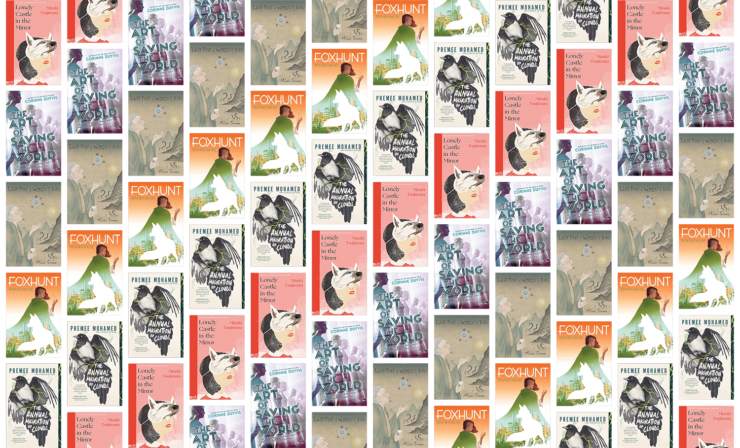
Wow, I feel old and out of touch because none of those five covers appeals to me.
For my favourite, standalone, science fiction, I reach for Neal Stephenson. I finished Termination Shock recently and it felt like a return to classic Stephenson (in both good and bad ways!).
@1 vinsentient
I’m currently reading Anathem for the first time and am having real trouble letting out of my hands. What a book.
The Absolute Book, by Elizabeth Knox (2019 and 2021)
It really should be enough to say that this is an Elizabeth Knox fantasy. It is an innovative contemporary fantasy that takes place mostly on Earth and the world of the Fae. There are multiple things going on. Some are mundane happenstances that nonetheless totally disrupt people’s lives. Some are conflicts and mysteries that span worlds and have been going on for centuries. It is a serious fantasy. There are tragedies. There also are long moments of beauty and wonder. And there is a hilarious send-up of a certain fantasy movie-making studio in New Zealand.
The Absolute Book was published in New Zealand in 2019, and then in 2021 it was published in North America and Europe. Because it did not have general availability in North America and Europe until 2021, I think it is eligible for awards.
Some of my personal favourite speculative fiction stand-alones are:
– Bellweather, by Connie Willis
– On a Sunbeam, by Tillie Walden
– The Diamond Age (or, A Young Lady’s Illustrated Primer), by Neal Stephenson
– Seveneves, by Neal Stephenson
– Snow Crash, by Neal Stephenson
– (do Connie Willis’s To Say Nothing of the Dog and Doomsday Book count?)
Does Bridge of Birds by Barry Hughart count? Yes, he did write sequels, but Bridge definitely stands on it’s own. Also, it is full of marvels. Number Ten Ox and Master Li, a scholar with a slight flaw in his character, wander through an ancient China that never was to save the children of the village from a plague that can count.
I really enjoyed “Last Poet.”
Is Howse University related to Margaret St. Clair’s Horror Howce?
I feel that Katherine Addison’s Goblin Emperor belongs here. There are/will be other in-universe books, but the story stands alone.
Outside of the Fionavar trilogy, and the Sarantium duology, all of Guy Gavriel Kay’s books are stand alone.
@3 voidampersand
An excellent call-out for an outstanding book.
How about David Weber’s In Fury Born? Honor adjacent but not part of the Honorverse. Young soldier prodigy/genius rises quickly through allied forces to become a key part of its most elite unit – and then all sorts of things happen. Well written and fun, albeit in the Weberian style.
One minor irritant of modern publishing is retroactively classifying standalone novels as series, just because they take place in the same fictional universe. I believe every book set in Ursula Le Guin’s Hainish universe, for example, is a standalone, but are now called “Hainish Chronicles #1” etc., creating the false impression it’s one continuous story. I can see why it makes sense from a marketing perspective. From a literary one, it’s nonsense.
re #9 and Weber’s In Fury Born : does that still count as standalone now that the first prequel novel Governor is out?
@10–Yes! Agreed! Agreed! Such an annoyance, I wish there were a third category under which they could market books, one which would appeal to the series-lovers while reassuring the minority of us who want standalones that This Book Will Neither Confuse You at the Outset Nor Leave You Hanging at the End. On the recommendations of folks on Tor comment pages, I read A Civil Campaign, and I love it, and it definitely satisfies that requirement. I went back and read Komarr and that added some to my enjoyment on re-reading A Civil Campaign, but I still know from experience that A Civil Campaign stands extremely well on its own.
I read almost exclusively standalone novels. (There are a handful of exceptions, such as the Ann Leckie trilogy, a few mystery series, and series of novellas like Murderbot or the Monk & Robot books, or children’s series like David Robertson’s Misewa Saga.) This is not a problem in non-genre fiction, but in SFF it’s more and more of a barrier. I scan through the various Tor lists of “new books out this month” and skip all the ones with volume numbers. I have the sense that until relatively recently there were at least more standalones in YA SFF, but now series seem to be taking over that territory as well.
Yes to The Goblin Emperor. And Elizabeth Moon’s Remnant Population. And going back further, Od Magic and other Patricia McKillip fantasies. And the ones mentioned @@.-@ by Connie Willis. How about Michael Flynn’s Eifelheim ? Also, Eleanor Arnason’s A Woman of the Iron People. Arnason’s Ring of Swords is one that was retroactively marketed as #1 of 2, but I think the #2 is stories set in the same world? I don’t believe there’s a second novel in that world. In any case, Ring of Swords definitely stands on its own.
Stars in my pocket like grains of sand.
Babel 17.
Nova.
Samuel R Dalany.
80 Minute Hour.
Hothouse.
Brian Aldiss.
Divinity Student.
Tyrant.
Animal Money.
Michael Cisco.
Middlemarch.
Central Station.
Unholy Land.
Violent Century.
The Escapement
Lavie Tidhar.
House of Suns.
Century Rain .
Alistair Reynolds.
Vineland.
Thomas Pynchon..
Vacuum Flowers.
Michael Swanwick.
And so many more.
Who fears death.
Nnedi Okorafor.
Spirit.
Gwyneth Jones.
To many to list.
Tanith Lee.
Cipher.
Bad Brains .
Kathe Koja.
Dozois was hardly the first to complain; Silverberg grumbled about trilogies during his Philcon GoH speech (1987, says Fancyclopedia).
Aoki’s Light from Uncommon Stars ends with no room that I can see for a sequel; it’s also one of the best genre works about music I’ve read.
Tanzer’s Creatures of Will and Temper is marked as “Diabolists Library #1” — but the other two are less related to it (or to each other) than Silverberg’s Lord Valentine books. (#1 is in Oscar Wilde territory, #2 sits next to The Great Gatsby.) ISTR there’s not even that much commonality in the magic, save that it’s very likely to bite.
Kim Newman’s “Anno Dracula” books are similarly separated: 1890’s, World War 1, Rome of La Dolce Vita — although they have a couple of continuing characters.
The “Saint of Steel” books by “T. Kingfisher” have a common setting and lightly-overlapping characters (each foregrounds a different ~hero, with previous ~heroes appearing in a few scenes), but each one is independent.
Have you mentioned The Art of Saving the World in an earlier review? It sounds very familiar.
@17- Do you follow the reviews on his blog? I believe he covered it there.
Janny Wurts – To Ride Hell’s Chasm, also Sorcerer’s Legacy and The Master of Whitestorm.
C.J. Cherryh – Faery in Shadow (or Faery Moon), and The Goblin Mirror.
Charles de Lint – Harp of the Grey Rose, Yarrow, Memory and Dream
Raymond E. Feist – Faerie Tale
Simon Hawke – The Whims of Creation
T. Kingfisher – Bryony and Rosees, the Hollow Places, Minor Mage, The Twisted Ones, A Wizard’s Guide to Defensive Baking
Megan Lindholm – Alien Earth, Cloven Hooves, wizard of the Pigeons
Kathryn Kristine Rusch – Fantasy Life
Sydney J. van Scyoc – Drowntide
E.J. Swift – Paris Adrift
Paula Volsky – The Curse of the Witch-Queen
Walter Jon Williams – Knight Moves
Connie Willis – Passage
Terri Windling – The Wood Wife
@19: Great list!
———–
It is true that fantasy, and to a lesser extent SF, is dominated by series but I’m always a bit surprised when people talk as if there were no standalone novels to be found.
There are tons of standalones!
Some authors, very good authors!, write primarily (or even exclusively) standalone novels, such as Peter S. Beagle or Guy Gavriel Kay. And the majority of authors has standalones besides their series – they just seem to get less attention.
@10 & 12: My view is almost entirely opposite to yours.
I’m kind of a completist when it comes to an author’s literary universes. I try to get all the stories set in the same world before I start reading and will immerse myself reading them all.
These days, thanks to the internet, finding out about this is sooo much easier but I still appreciate it if there’s a indication on the book or story that it is connected to a certain literary universe.
I think the issue might be the term “series”.
Unfortunately, it is used both for sets of books that are essentially just one long story broken down into several volumes, and for sets of stories that only share some elements (like the setting) – and anything in between.
Waitaminnit, is this really a JDN post? Where are the FOOTNOTES?!?!
@11 – Wow, no idea that was in the works. I’d still view the novel as standalone, as the prequel series seems far in the past.
Yes, the thing about stand-alones is that they can stand alone. Even some series novels can do it, but it would be a strange novel that couldn’t if it was not originally intended to have a sequel or prequel. The later appearance of a sequel can’t strip standalone quality from a book that had it before.
@21, Your view is indeed the opposite of mine. I still remember the pleasure and satisfaction I received as a child upon realizing, hundreds of pages into a science fiction novel, that what I had assumed to be distinct stories were really taking place within the same imaginary reality. Looking back, I see the sensation as a reward for my broad and attentive reading of brilliant fantasists like Le Guin. Had some marketer already connected the dots for me, it wouldn’t and couldn’t have evoked the same response. And rightly so. It wouldn’t have been earned.
@18
Add to that list, from CJ Cherryh:
Cuckoo’s Egg
The Paladin
Rimrunners
Merchanter’s Luck
Wave Without a Shore
They may take place within a time described in other series, but are good as standalone, no need to read a prequel or sequel.
I’ve run into the problem of recommending an author, best known for a particular series, especially when the first book isn’t my favorite. Sometimes I can get them hooked with a standalone, like Redshirts by John Scalzi, or Moonfall by Jack McDevitt (NOT the basis for the recent movie!)
Robin McKinley, Sunshine.
I liked The Annual Migration of Clouds by Premee Mohamed but it really felt like the first book in a series/trilogy, and the author has committed sequel before. I hope there are more.
War of the Flowers by Tad Williams. An amazing novel.
They made an anime of Kagami no Kojou.
The Enchanted Castle/E. Nesbit
The Wish List/Eoin Colfer
If That Breathes Fire, We’re Toast!/Jennifer J. Stewart
Spinning Silver/Naomi Novik
The Moorchild/Eloise Jarvis McGraw
The Lie Tree/Frances Hardinge
A Tale of Time City/Diana Wynne Jones
11/22/63/Stephen King
Nation/Terry Pratchett
The Princess in the Pigpen/Jane Thomas Resh
The Spirit Ring, by Lois McMaster Bujold
The Hobb’s Bargain, by Patricia Briggs
The Flying Sorcerers, by David Gerrold and Larry Niven
Flashforward, by Robert J. Sawyer (and many more by this author)
Just a few more:
Queen of Iron Years by Lyn McConchie and Sharman Horwood
Serpent’s Reach and Forty Thousand in Gehenna by CJ Cherryh
These are among my re-read collection, books I return to because I love the experience reading them gives me.
Empire of the East, Fred Saberhagen
To Hold Infinity by John Meaney
Empire of the East is an interesting case. I encountered it as the omnibus but I believe the component parts appeared on their own. See also Pohl and Williamson’s Starchild Trilogy.
#31 @Mars: What is the name of the anime? Because I can only find a manga version of that name.
Philip K Dick.
@38 James Davis Nicoll yes that is correct. I also first encountered as an omnibus, a complete work, but later found out it had appeared as smaller, sequential works.
But taken together it stands alone